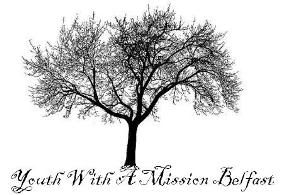Thursday, May 03, 2007
Blog from Pádraig
I'm in Harpenden, north of London, for a few days, talking with a "Peace & Diplomacy Internship" being run by the YWAM centre here. We have been attempting to examine how it is that people of different creeds, with different ideas of the necessary outworkings of those creeds can engage in meaningful dialogue together, where the individuality of each is respected, but also where the deep ground of our common humanity is honoured & shared... I've been very impressed by the writings of Reuven Firestone and thought that I'd put some of his quotes here.
A Jew speaks to Muslims about the need to listen to Jesus
In the sermon on the mount, Jesus declared blessed are the peacemakers for they will be called children of God. The term children of God does not ring well to Muslims, because it suggests that God has children and partners in the godhead. Suggesting such a thing is called shirk in Arabic, or Association. …but the term in Matthew is a metaphor, and it is fair and honest to read it as such. Jesus does not suggest that God has children or partners. The suggestion, rather, is that as humans created with the divine image, when we make peace awe active our greatest potential of emulating God, the merciful and compassionate. The Qur’an teaches that, even if your most bitter enemy should show signs of moving in the direction of peace, you must do the same. “and if they incline toward peace, you must also include toward it”. Judaism teaches the same in Psalm 34”13-15.
Love, although the greatest of emotion,s is not always possible. we are only mortal human beings, only flesh and blood. Sometimes we just cannot love those whom we perceive as hating us. But if you cannot love them, you can still argue with them. Speak, talk, discuss, drink tea with them. Take your people to visit their mosques and churches, and invite them to visit your own. let them know how you feel. If it does not go well, keep arguing. Complain, explain, dispute, and bicker. Organize others in your cities and towns and villages to do the same. Always keep your argument and your discussion leshem shamayim. Do it for yourselves, for your communities, for your future and the future of your children and your children children. Do it for God.

A Jew speaks to Muslims about the need to listen to Jesus
In the sermon on the mount, Jesus declared blessed are the peacemakers for they will be called children of God. The term children of God does not ring well to Muslims, because it suggests that God has children and partners in the godhead. Suggesting such a thing is called shirk in Arabic, or Association. …but the term in Matthew is a metaphor, and it is fair and honest to read it as such. Jesus does not suggest that God has children or partners. The suggestion, rather, is that as humans created with the divine image, when we make peace awe active our greatest potential of emulating God, the merciful and compassionate. The Qur’an teaches that, even if your most bitter enemy should show signs of moving in the direction of peace, you must do the same. “and if they incline toward peace, you must also include toward it”. Judaism teaches the same in Psalm 34”13-15.
Love, although the greatest of emotion,s is not always possible. we are only mortal human beings, only flesh and blood. Sometimes we just cannot love those whom we perceive as hating us. But if you cannot love them, you can still argue with them. Speak, talk, discuss, drink tea with them. Take your people to visit their mosques and churches, and invite them to visit your own. let them know how you feel. If it does not go well, keep arguing. Complain, explain, dispute, and bicker. Organize others in your cities and towns and villages to do the same. Always keep your argument and your discussion leshem shamayim. Do it for yourselves, for your communities, for your future and the future of your children and your children children. Do it for God.

